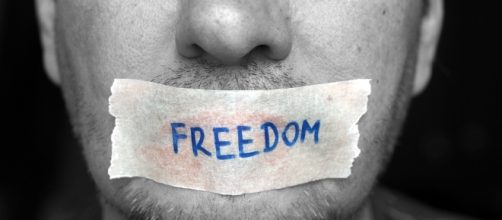In the United Kingdom (UK), there is a strong desire to protect their individuals' freedoms, to ensure that their privacies are not encroached upon and that they all remain free from any control or restrictions. But despite this desire, is it that much of a good thing and does this desire not come at a much greater cost to #society itself? Let us investigate this matter further.
The fear of infringement upon their freedoms
It is important at the outset to note that there are many basic human rights for freedom in the UK itself. Values such as free speech, freedom to pray, assemble and act in a way that they so wish are fundamental to the UK as the democratic, civilised nation that it is.
This is backed up by Article 8 of the Human Rights Act (1998) which states that "everyone has the right to respect for his private and family life", as reported by the Liberty Human Rights website. However, despite this, the question that remains is, why are such freedoms so important to the public?
It seems that above all, people do not like the idea of having their freedoms curtailed. The situation may be very different but as I said, it is the idea. The thought of not being able to do exactly what they desire is uncomfortable to a lot of people and because of this minor paranoia, it has manifested itself in major decisions taken. This not only includes the vehement opposition to ID cards, the decision to leave the European Union and even their distain to the potential emergence of a nanny state.
It is this mind-set has had a major effect on the country going forward. But before I go on, let me firstly try and diffuse this general #fear. I live in a country (Israel), where they are not only ID cards for every citizen, but there is a clear nanny state in which the security services keep a close eye on the public itself. However, I do not feel less free or even feel that my freedoms have been curtailed. I still walk down the street, go to the supermarket, meet a friend for lunch or go to the cinema and I don't feel any less free. However, it is because of this paranoia that the possibility of major errors in decision making may negatively affect the UK in the future.
Going too far though
However, despite this, there is another problem. Is there ever a point in which this desire to maintain people's freedoms does come at a cost? Do we sometimes go too far in such a pursuit? The recent case concerning Facebook illustrates my point succinctly.
On September 6th, 2016, a fifteen-year-old boy called Arthur Heeler-Frood disappeared. However, even though his parents and the police were both extremely concerned and wanted to find out if Arthur had contacted anybody on social media, Facebook initially refused to help as reported by Heat Street. Even after six separate pleas were made, the social media company still refused to change. Although two months after Arthur disappeared Facebook did decide to assist in the investigation and Arthur was eventually found, their actions clearly illustrate the problem at hand.
The protection of the freedoms of its users is, it seems, the number one priority for Facebook and it shows the lengths they are willing to go to, to preserve that.
Looking to the future
But the incident raises further serious questions. At one point, should people's freedoms be sacrificed in the name of the common good? And is the #safety of an individual or a nation more important than feeling free from the world? It is a serious issue and one that will surely garner further debate and discussion going forward. We just need to ensure that the correct decision is made because at some point it may well become a life or death situation.

